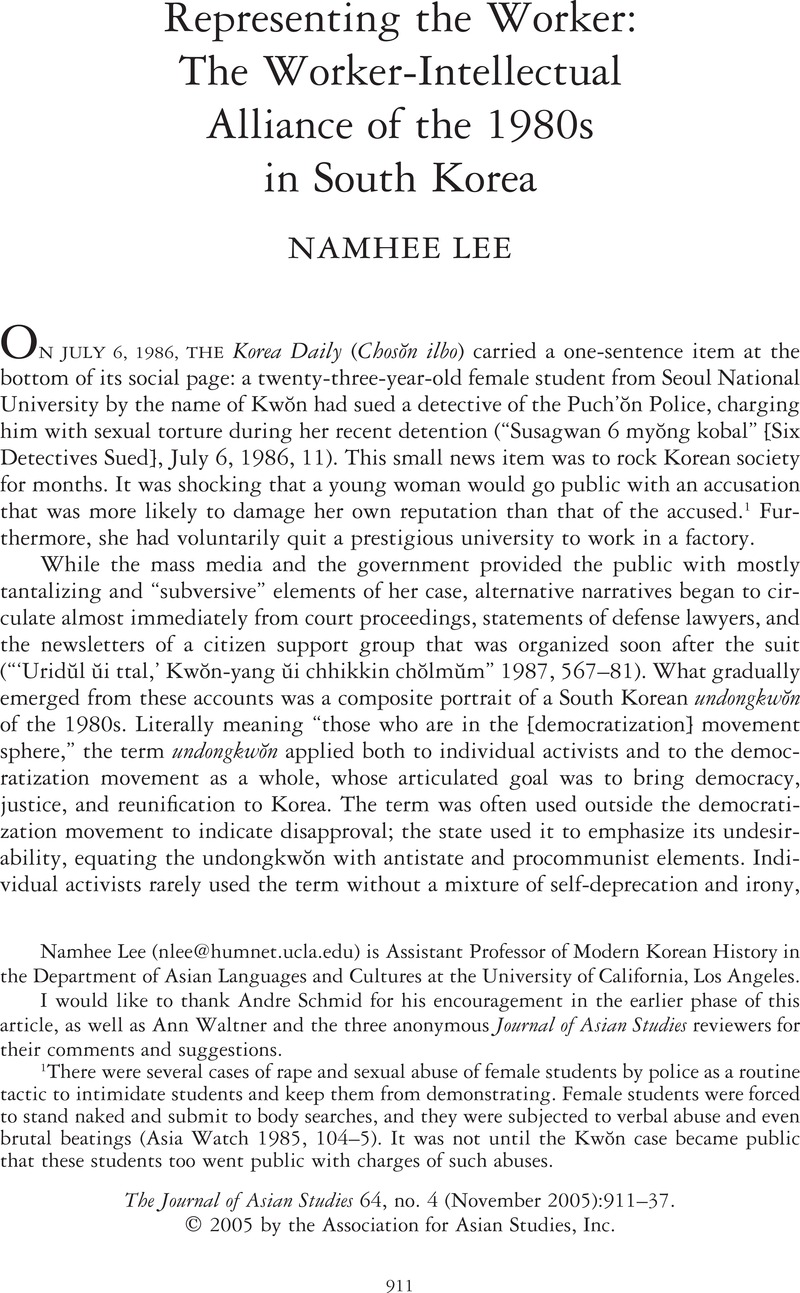Crossref Citations
This article has been cited by the following publications. This list is generated based on data provided by Crossref.
Filardo, Peter Meyer
2006.
Labor HistoryBibliography 2005.
Labor History,
Vol. 47,
Issue. 3,
p.
361.
Kim, Sungmoon
2008.
Transcendental collectivism and participatory politics in democratized Korea.
Critical Review of International Social and Political Philosophy,
Vol. 11,
Issue. 1,
p.
57.
2009.
South Koreans in the Debt Crisis.
p.
1.
2009.
South Koreans in the Debt Crisis.
p.
95.
2009.
South Koreans in the Debt Crisis.
p.
49.
2009.
South Koreans in the Debt Crisis.
p.
169.
2009.
South Koreans in the Debt Crisis.
p.
117.
Weiss, Meredith L.
2009.
INTELLECTUAL CONTAINMENT.
Critical Asian Studies,
Vol. 41,
Issue. 4,
p.
499.
2009.
South Koreans in the Debt Crisis.
p.
73.
2009.
South Koreans in the Debt Crisis.
p.
25.
2009.
South Koreans in the Debt Crisis.
p.
141.
Song, Jesook
2009.
Between Flexible Life and Flexible Labor.
Critique of Anthropology,
Vol. 29,
Issue. 2,
p.
139.
Kern, Thomas
2010.
Translating Global Values into National Contexts.
International Sociology,
Vol. 25,
Issue. 6,
p.
869.
Song, Jesook
2010.
‘A room of one's own’: the meaning of spatial autonomy for unmarried women in neoliberal South Korea.
Gender, Place & Culture,
Vol. 17,
Issue. 2,
p.
131.
Kim, Mikyoung
2011.
Gender, Work and Resistance: South Korean Textile Industry in the 1970s.
Journal of Contemporary Asia,
Vol. 41,
Issue. 3,
p.
411.
Lee, Katherine In-Young
2012.
The Drumming of Dissent during South Korea’s Democratization Movement.
Ethnomusicology,
Vol. 56,
Issue. 2,
p.
179.
Schirmer, Andreas
2022.
The Two Koreas and their Global Engagements.
p.
259.





